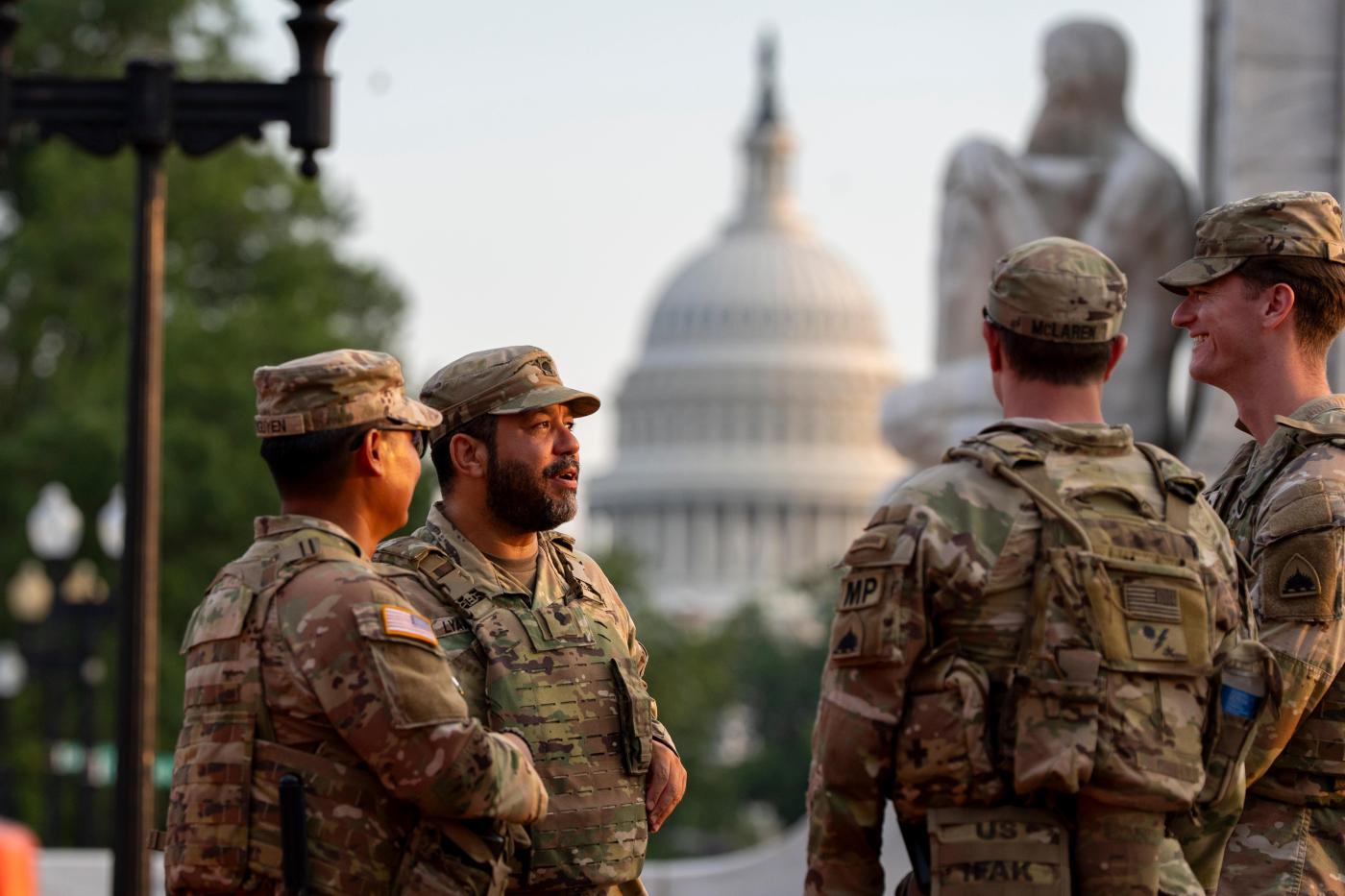At a recent discussion hosted by Politics & Prose bookstore in Washington, D.C., Maryland Governor Wes Moore addressed the evolving role of states in safeguarding U.S. democracy. He emphasized the need for creativity in governance, stating, “The partnership that we came to rely on between the federal government and our states, it’s not that it’s changed, it’s that it’s severed.”
Moore’s remarks reflect a long-standing issue regarding the separation of powers as outlined in the U.S. Constitution. Article I, Section 8 grants Congress the exclusive authority to declare war, yet this power has not been exercised since 1942. In light of this, Moore advocates for a legislative solution known as the Defend the Guard Act. This proposed legislation would prevent the deployment of the Maryland National Guard into active combat unless Congress has officially declared war.
The Defend the Guard Act has been introduced in over 30 states and aims to restore constitutional military oversight. Moore highlighted his military background during the event, asserting, “My background’s a soldier. I know how to stand guard.” He emphasized the importance of adhering to constitutional law, stating, “Before you even ask us, I will not authorize the usage of the Maryland National Guard for any mission that is either not mission-aligned nor mission-critical.”
Critics argue that deploying troops without congressional approval undermines both the integrity of the Constitution and the safety of local communities. Moore pointed out the potential implications for Maryland, particularly during emergencies such as the spring floods that affected the western part of the state. He expressed concerns about the depletion of critical manpower in such situations.
The Defend the Guard Act has received committee hearings in the Maryland legislature for three consecutive sessions under both Presidents Joe Biden and Donald Trump. However, despite vocal support from many constituents, including veterans, the bill has not yet seen a vote. Moore’s initiative raises questions about whether the current democratic process allows for adequate representation of constituents’ views on military deployments.
Moore further stressed the gravity of deploying the National Guard, stating, “We have to understand the weight that that decision should carry.” He believes in the necessity of debate and a vote in Congress before any troop deployment occurs, ensuring that military decisions reflect the will of the people.
In his closing remarks, Moore invited collaboration on the Defend the Guard Act, suggesting that he is open to working with others to advance the legislation. As he prepares to reintroduce the act in 2026, he awaits support from fellow lawmakers, including his own endorsement.
Delegate Robin Grammer, a Republican representing Baltimore County and a proponent of the act, expressed hope that Moore would stand by his principles and support the legislation moving forward. He questioned whether Moore’s criticisms of presidential overreach are genuine or merely performative.
The ongoing dialogue surrounding the Defend the Guard Act highlights a critical intersection of state and federal authority, the role of military forces, and the necessity of upholding constitutional principles in governance. The outcome of this legislative effort will have lasting implications for both Maryland and the broader conversation about military engagement and democratic accountability in the United States.
